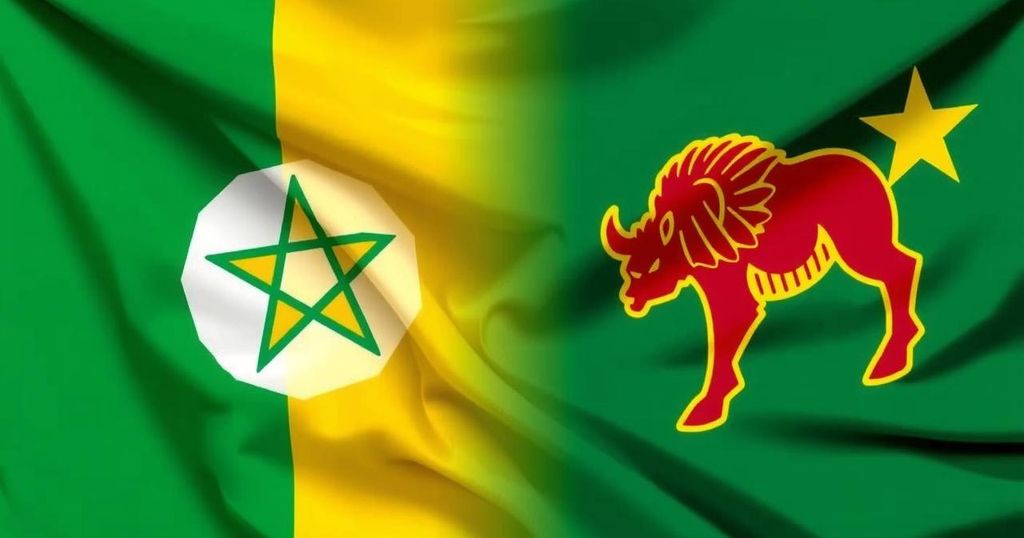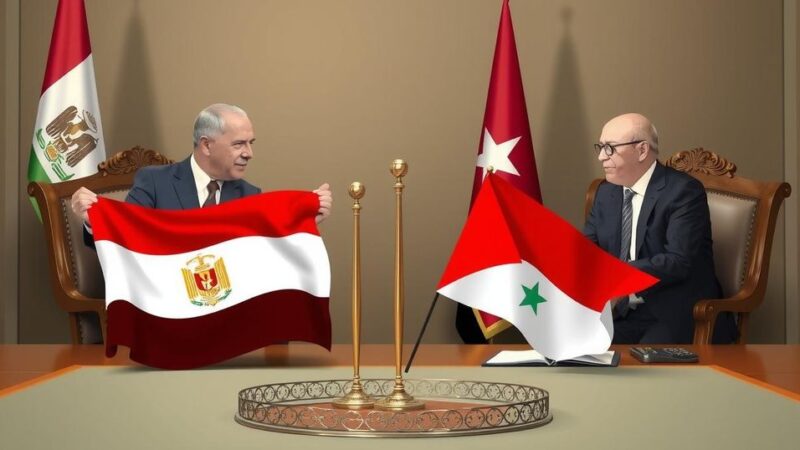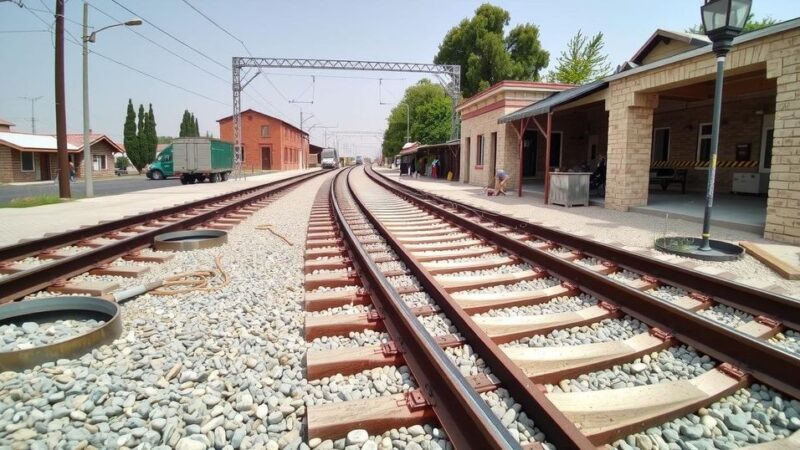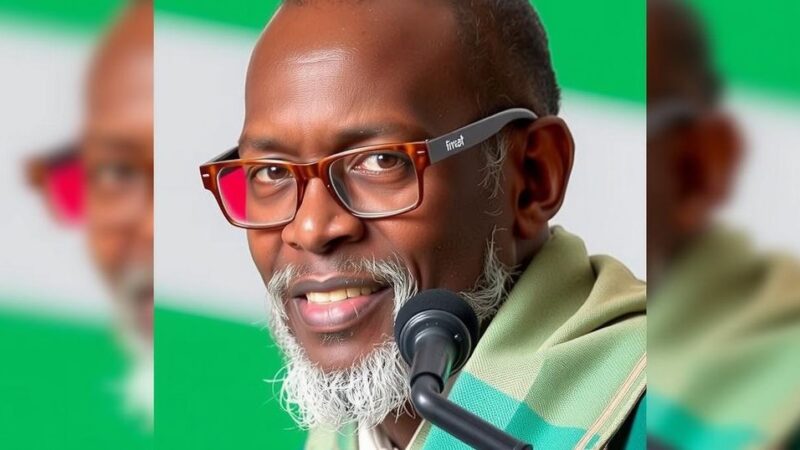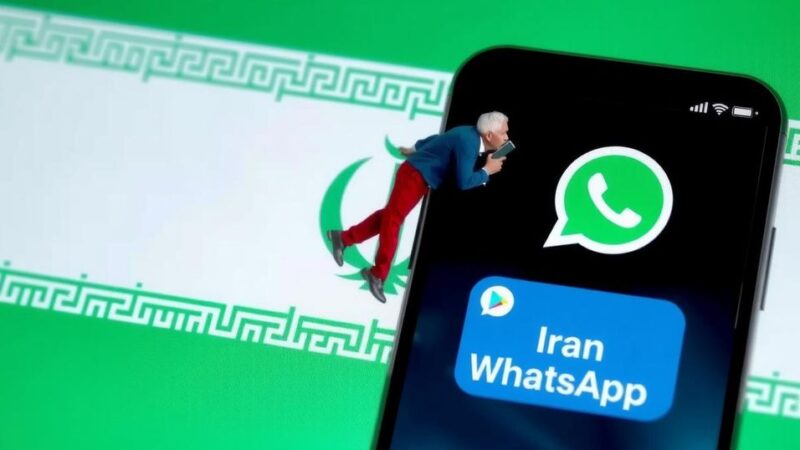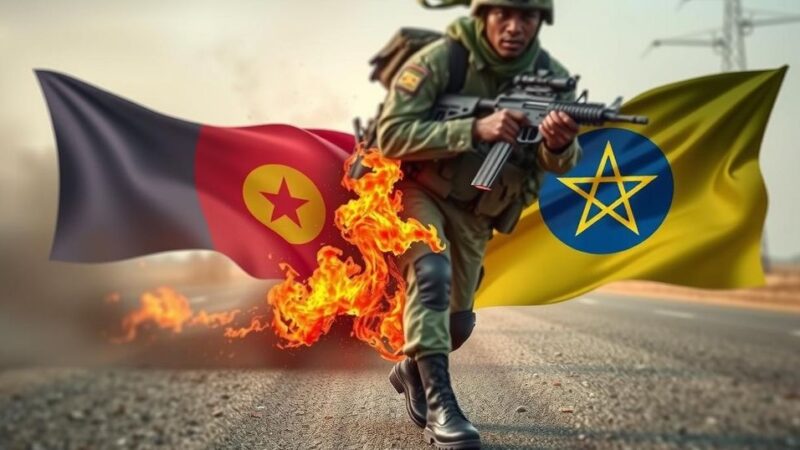Somaliland’s opposition party, Waddani, supports its relationship with Ethiopia, emphasizing collaboration for mutual benefit. They criticize the lack of transparency in the MoU details and assert that Ethiopia is a genuine partner. The opposition expresses confidence in future cooperation and highlights Somaliland’s right to forge international agreements while urging Somalia to address its internal issues.
In a recent discussion, Somaliland’s opposition party, Waddani, expressed strong support for the relationship between Somaliland and Ethiopia, emphasizing the mutual benefits that have arisen from their collaboration over the years. Member Mohamed Abdullahi Omar articulated that the opposition does not oppose the memorandum of understanding (MoU) signed between the two entities, calling Ethiopia a “genuine partner.” However, he criticized President Musa Bihi Abdi’s administration for not publicly disclosing the details of this agreement, suggesting that transparency is a legal obligation to allow the public and opposition to scrutinize it. Omar remarked, “Unfortunately, the current Somaliland administration has not shared the details of the MoU with the opposition nor the parliament, yet we are the majority in the parliament,” indicating a need for accountability in governance. He affirmed that once the details are made public, the opposition would formulate an informed position based on the long-term national interests of Somaliland and principles related to good neighborhood relations. Despite the lack of public details, the Waddani party maintains confidence in the partnership with Ethiopia and is optimistic about future cooperation in areas such as trade, security, and energy. Omar noted, “Our party is confident that Ethiopia is genuine in its relationship with Somaliland, and we look forward to further cooperation in many areas, including trade, security, and energy,” reflecting a positive outlook on bilateral relations. The official also highlighted Somaliland’s historical autonomy in establishing agreements with other nations, providing the example of previous agreements with the United Arab Emirates, thus affirming that Somaliland reserves the right to negotiate with any country. Omar also remarked that the utilization of the Berbera port by Ethiopia would benefit Somaliland, reinforcing the strategic position of the port as a regional commercial hub. In reacting to Somalia’s concerns regarding possible annexation initiated by the agreement, he suggested that the Somali administration should prioritize addressing its internal issues, particularly the challenges posed by Al-Shabaab. He asserted, “Somalia has got a lot to focus on now including its internal problems such as lawlessness and eliminating terrorist groups that are causing chaos and mayhem.” Finally, Waddani reiterated the belief that Ethiopia’s quest for port access is legitimate and integral to the regional commercial framework that Somaliland aims to establish.
The political dynamics in the Horn of Africa are increasingly complex, particularly as Somaliland, a self-declared state, seeks to solidify its international relationships. The relationship between Somaliland and Ethiopia is key in addressing regional stability and economic development. Recent agreements between the two have raised concerns, especially from Somalia, regarding territorial integrity and national sovereignty. The Waddani party’s position underlines a strategic approach towards fostering cooperation with neighboring countries while maintaining regional autonomy.
In conclusion, the Waddani party’s endorsement of the partnership with Ethiopia reflects a desire for sustained collaboration that could enhance Somaliland’s economic and security interests. Nonetheless, the call for transparency regarding the details of the memorandum of understanding is crucial for accountability and the public’s right to information. As Somaliland navigates these relationships, addressing internal governance issues and engaging in constructive dialogue with Somalia will be essential for broader regional stability.
Original Source: www.garoweonline.com

